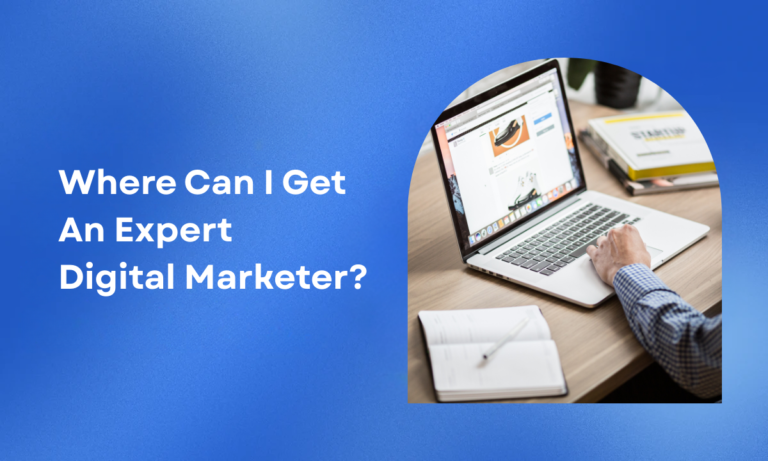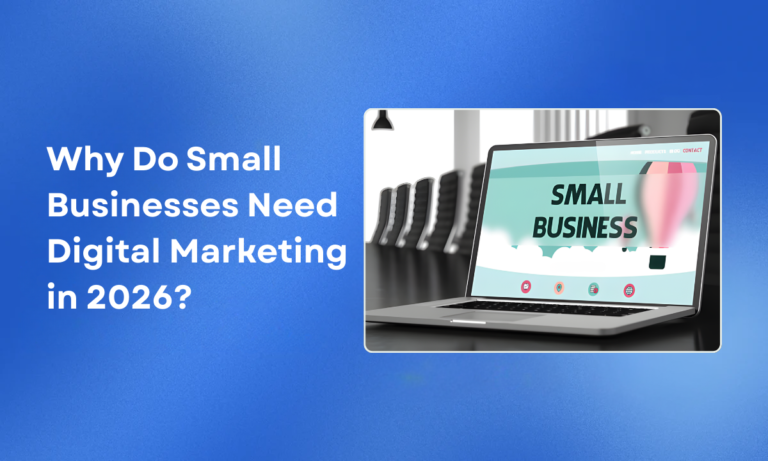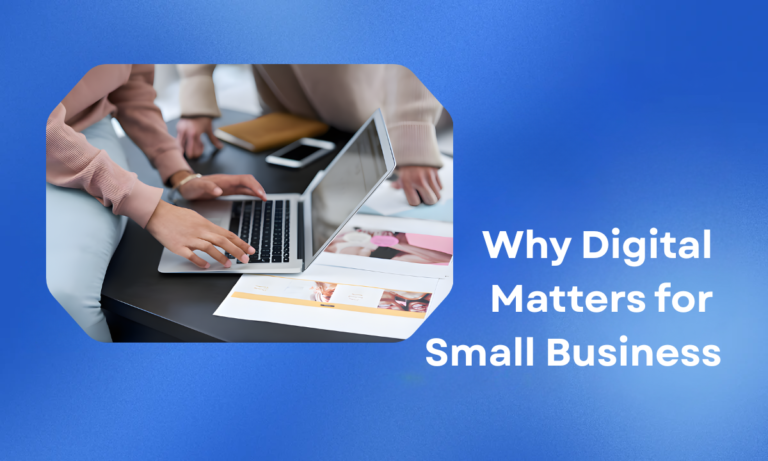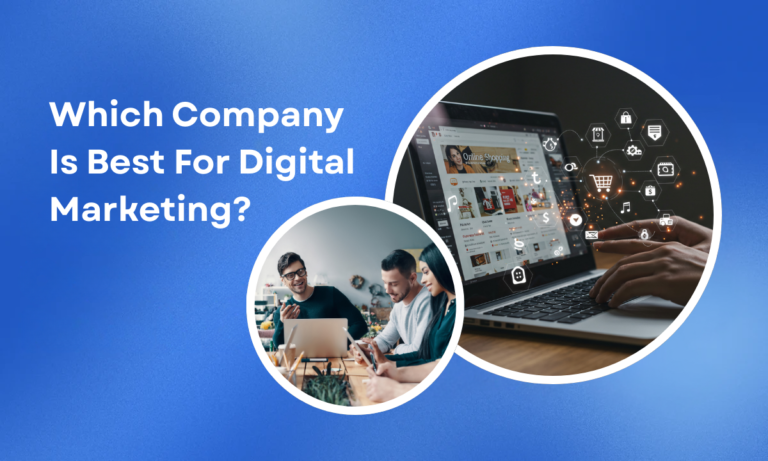AI in digital marketing has evolved from an experimental tool to a pivotal competitive advantage. While competitors discuss generic benefits like ‘personalization,’ forward-thinking businesses are harnessing AI for predictive lead scoring, dynamic ad optimization, and hyper-efficient content creation—ushering in a new era of growth and innovation in the industry.
Consider this:
- Fifty percent of marketing leaders report that AI has a significant impact on productivity (2024 Global Digital Skills Report).
- AI-driven campaigns achieve a 30% higher click-through rate (CTR) and a 20% lower cost per acquisition (CPA) compared to traditional methods, according to the Google Ads AI Benchmark Study. This efficiency and cost-effectiveness provide a strong reassurance about the return on investment in AI.
This guide delves beyond surface-level ChatGPT examples to explore how Artificial Intelligence and Digital Marketing are reshaping marketing strategies today—and how you can implement them before your competitors catch up.
What is Digital Marketing
AI in digital marketing encompasses the integration of machine learning (ML), natural language processing (NLP), and predictive analytics to transform raw data into actionable insights and strategies. Unlike rule-based automation, AI systems learn from interactions, enabling more intelligent decisions with each campaign iteration.
Core Capabilities Redefining Marketing
Data Intelligence at Scale
AI processes millions of data points—from clickstream patterns to purchase histories—to identify trends human analysts might miss. For example, dynamic pricing models adjust e-commerce offers in real-time based on demand signals.
Contextual Personalization
Tools like Adobe Target utilize AI to deliver personalized web experiences, resulting in a 28% increase in conversions (Adobe 2024 benchmarks). This goes beyond a basic “Hi [Name]” to recommending products based on real-time browsing behaviour, Device type (mobile vs. desktop intent differs), and even local weather conditions.
Self-Optimizing Campaigns
Google’s Automated Bidding leverages AI to adjust bids across channels, considering Time-of-day performance variances, Competitor ad pressure, User device, and location.
AI isn’t replacing marketers—it’s amplifying their impact. The most successful teams recognize the value of human creativity and oversight and combine it with AI’s computational power to achieve unparalleled results.
AI Digital Marketing Tools | Categorized by Strategic Use Cases
| Tool | Primary Function | Key Advantage |
| Writer | AI Content Generation | Maintains brand voice consistency across 50+ content pieces/month |
| Midjourney | Generative AI for Visuals | Creates on-brand graphics from text prompts in <2 mins |
| Optimove | AI-Powered Customer Data Platform (CDP) | Predicts churn risk 30 days before it happens |
| Zapier | Workflow Automation | Connects 5,000+ apps without coding |
| ManyChat | NLP Chatbots for WhatsApp/Messenger | Resolves 70% of customer queries without human agents |
| Evolv.ai | Real-Time CX Optimization | A/B tests 1,000+ webpage variations simultaneously |
| Surfer SEO | AI-Driven On-Page Optimization | Recommends the semantic keywords competitors miss |
| Mailchimp | Predictive Email Marketing | Auto-sends emails at each user’s optimal open time |
| Perplexity | Research-Focused AI Assistant | Cites verifiable sources to combat AI hallucinations |
| Drift | Conversational AI for Lead Gen | Book meetings by analyzing website visitor intent |
| Buffer | AI Social Media Management | Suggests high-engagement post times per platform |
| Tableau | AI Data Visualization | Auto-detects anomalies in campaign performance data |
How Industry Leaders Are Leveraging AI in Digital Marketing
1. Sephora’s AI-Powered Beauty
Sephora addressed online beauty shopping’s biggest hurdle—the inability to physically test products—by developing two breakthrough AI tools. Their Virtual Artist app uses computer vision to analyze facial features and recommends perfectly matched foundation shades with 90% accuracy. Their AI chatbot handles 70% of pre-purchase queries.
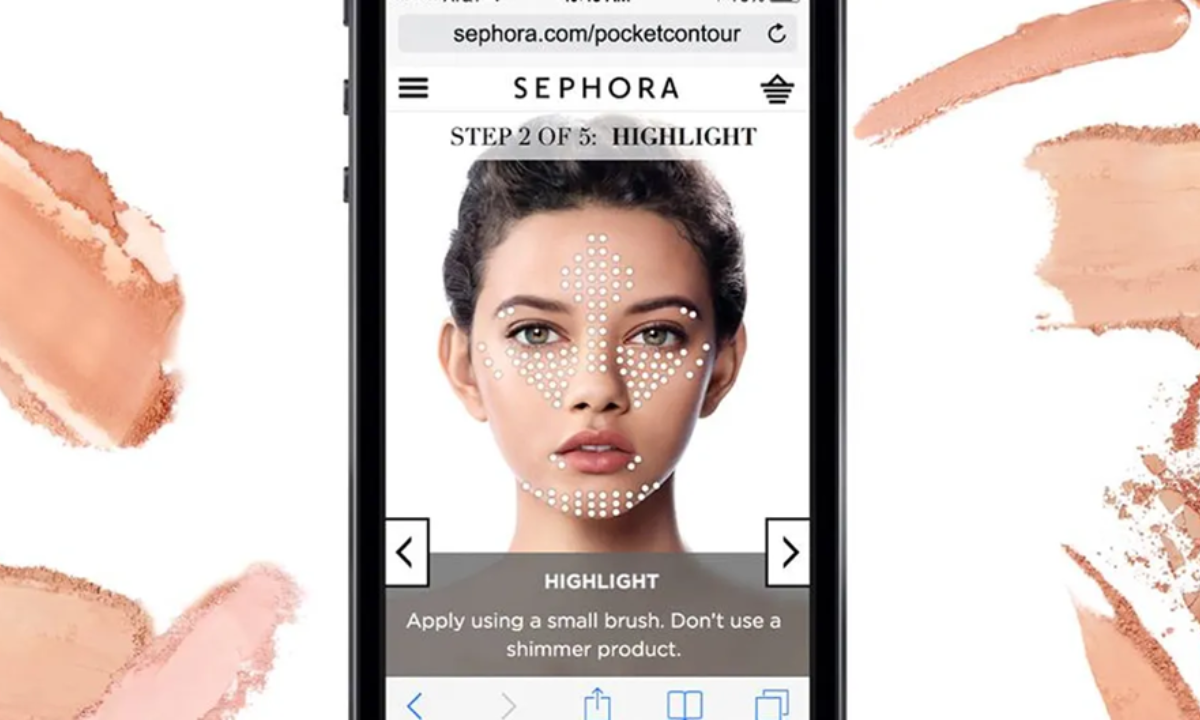
This strategic AI implementation drove their e-commerce growth from $580 million to $3.6 billion between 2016 and 2024, demonstrating that AI-driven personalization leads to premium conversions.
2. Netflix’s Recommendation Engine
Netflix has perfected content personalization by analyzing over 2,000 data points per user, including viewing habits such as rewatches and pauses, as well as device-specific behaviors and temporal patterns.

This sophisticated system doesn’t just suggest shows—it actively reduces churn, driving 80% of watched content and saving $1B yearly in retention costs by keeping subscribers engaged with tailored recommendations.
3. Spotify’s Discover Weekly
Spotify’s wildly popular Discover Weekly feature combines collaborative filtering with advanced audio analysis. By comparing your listening habits with those of similar users and detecting song attributes like BPM and mood, it creates playlists that flow perfectly and feel personally crafted.
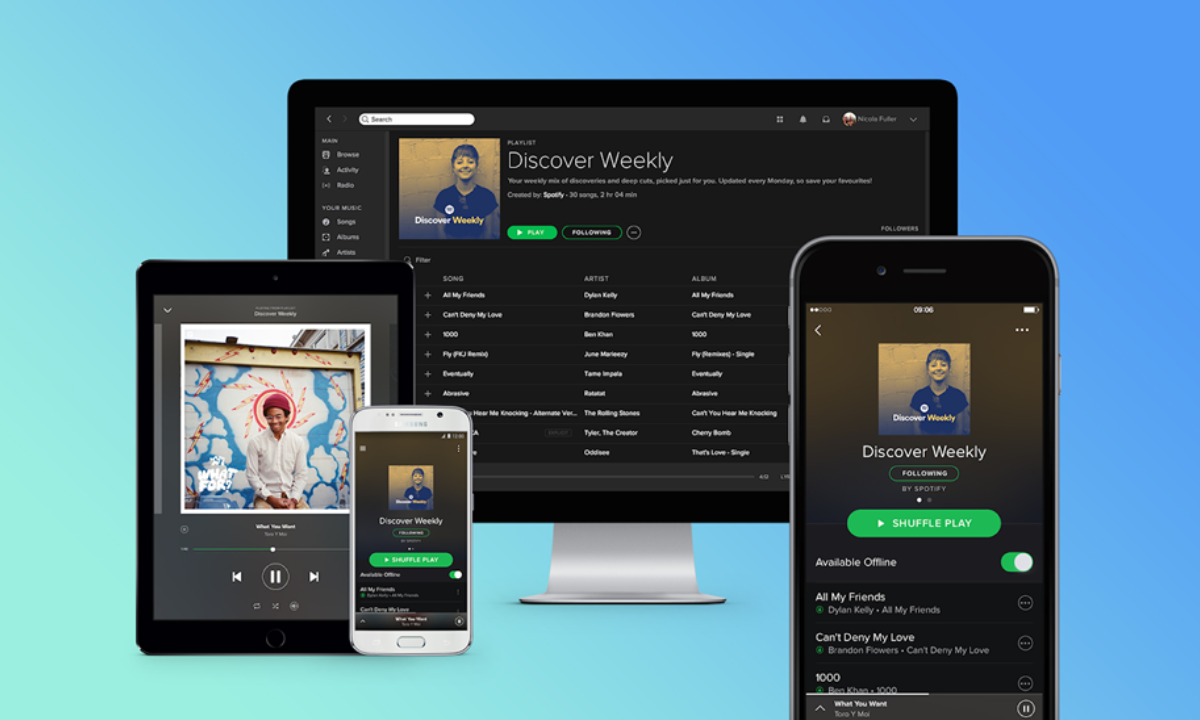
The result? Over 40 million engaged weekly users and a 30% lower unsubscribe rate among active listeners, demonstrating AI’s power to build habitual usage.
4. Amazon’s AI Smarter Shipping, Smarter Pricing
Amazon utilizes AI in two often-overlooked operational areas, creating significant competitive advantages. Their anticipatory shipping system predicts orders before checkout, using browsing and purchase history, which enables 35% faster deliveries.
Simultaneously, their dynamic pricing engine makes 2.5 million daily adjustments using reinforcement learning, boosting profit margins by 29%. Together, these AI applications enhance both customer experience and bottom-line results.
How to Use AI in Digital Marketing | 7 Practical Ways to Implement AI in Digital Marketing
AI is transforming marketing operations across every channel. Here’s how forward-thinking teams are leveraging it:
1. Content Creation at Scale
AI tools like ChatGPT and Claude accelerate copywriting for ads, emails, and blogs, while Midjourney generates visuals. Key benefit: Cuts content production time by 60%.
2. 24/7 Customer Service
Chatbots handle routine queries, resulting in a 40% reduction in support costs, while AI routing ensures that complex issues are directed to human agents more efficiently.
3. Precision Audience Segmentation
Machine learning analyzes customer behavior to dynamically group customers, enabling hyper-personalized messaging that boosts conversions by 25%.
4. Smarter SEO Optimization
AI automates keyword research, predicts algorithm updates, and optimizes for voice and visual search – critical skills, as 50% of queries are expected to be voice-based by 2025.
5. Self-Optimizing PPC Campaigns
Automated bidding adjusts in real time based on the following:
- Competitor ad pressure
- Device/location performance
- Seasonal demand shifts
6. Predictive Data Analytics
AI identifies trends in customer data three times faster than manual analysis, enabling proactive adjustments to strategy and informed decision-making.
7. Personalized Email Marketing
From subject line optimization to send-time prediction, AI increases open rates by 35% and reduces the number of unsubscribes.
Pros & Cons of AI in Digital Marketing
| Pros | Cons |
| Hyper-Personalization: AI analyzes user behavior to deliver tailored content, such as product recommendations and dynamic emails, resulting in a 20-35% boost in conversions. | High Implementation Cost: Advanced AI tools, such as IBM Watson and Google Cloud AI, require a significant investment in technology and training. |
| 24/7 Efficiency: Chatbots and automated workflows handle repetitive tasks, such as customer support and ad bidding, resulting in a 30-50% reduction in operational costs. | Lack of Human Creativity: AI-generated content often lacks emotional nuance, resulting in bland or off-brand messaging. |
| Data-Driven Decisions: Predictive analytics identify trends and customer churn risks with 85 %+ accuracy. | Data Privacy Risks: GDPR/CCPA compliance challenges arise from AI’s reliance on collecting user data. |
| Real-Time Optimization: AI adjusts campaigns instantly (e.g., PPC bids, email send times) based on performance data. | Algorithmic Bias: AI may reinforce biases in audience targeting if the training data is not diverse. |
| Scalability: Generative AI generates 100 times more content variants than human teams, making it ideal for A/B testing. | Overdependence: Teams may lose critical thinking skills by relying solely on AI recommendations. |
Conclusion:
AI in digital marketing isn’t about replacing human expertise—it’s about amplifying it. The most successful teams we work with treat AI as a force multiplier, leveraging its speed and data-processing capabilities to handle repetitive tasks such as bid adjustments, content variations, and performance tracking. This frees marketers to focus on what truly drives results: Creative Digital Marketing strategies, emotional storytelling, and building genuine customer relationships.
For businesses ready to embrace the Future of AI in Digital Marketing, the rewards are clear: higher engagement, lower costs, and scalable growth. At Web Converts, a leading Digital Marketing Agency in Bangalore, we help brands integrate AI seamlessly, combining cutting-edge automation with human expertise for measurable results.


